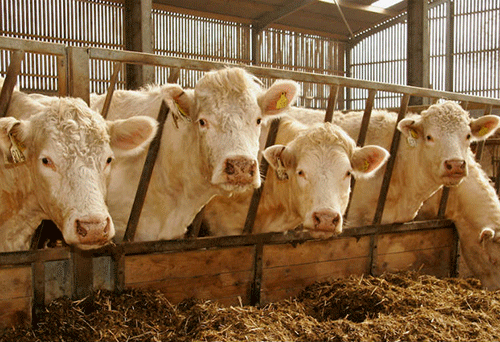Fewer animals have been marketed over the past six months, as farmers start restocking their herds after years of devastating drought. The drought spanned over three years since 2019 and resulted in the loss of many livestock due to limited or depleted pastures.
The restocking exercise, where farmers replace animals that have died in order to remain competitive, has meant that fewer animals were available to be marketed, either on the hoof or for direct slaughter.
A recent report by the Meat Corporation of Namibia (Meatco), which highlights statistics on the market during April 2021, stated that
export abattoirs like Meatco slaughtered 2 530 animals, Beefcor Meat Suppliers slaughtered 1 267 animals, while Hartlief Namibia slaughtered 202.
The Zambezi Meat Corporation (ZAMCO), operating the Katima Mulilo Abattoir North of the Veterinary Cordon Fence (VCF), did not manage to slaughter a single animal for the month. This translated to the total slaughtering at export abattoirs accruing to 3 999 animals, while the total number of animals slaughtered in the country, both South and North of the VCF, was 5 144.
During the period, 9 224 live animals were marketed to South Africa, indicating that fewer animals were marketed in the domestic market. Of the live exports, 524 were marketed to Angola. This brings the total marketed animals under the review period to 14 892 compared to 18 158 marketed in April 2020.
According to MBN, in April 2021: Cattle marketing declined by 34.03% year-to-date, while beef prices hit a high of N$55.46/kg amid a shortage of slaughter cattle due to herd-building.
In addition, Meatco’s Executive: Finance, Human Resources, Information Technology and Administration, Angus Claassen, indicated that during this period, Meatco’s average purchase price increased from N$46/kg to N$52/kg even though these high prices are unsustainable.
“The challenge of getting slaughter-ready cattle at realistic market prices will continue further into 2021. To get cattle in the current environment, Meatco will have to continue to realign the business to reduce both fixed and variable costs. This means, all the loss-making units, like in the case of our Cannery operations, will be suspended while we redesign business models to become profitable before operations can resume soon,” says Claassen.
Namibia is one of the most vulnerable countries to the effects of climate change due to the aridity in most parts of the country. Events resulting from climate changes such as droughts drive the majority of the population to poverty when they occur.
Drought spells have become a common feature in Namibia. In 2019, another drought hit Namibia and several resultant impacts made the news.
The rainfall during the 2019 drought was the lowest recorded in Windhoek since 1891 and the drought was the worst in the last 90 years in Namibia. A combination of poor, sporadic rainfall and low soil moisture has led to very low agriculture production and an extreme shortage of water, affecting several communities across the country.
As a result, at least one-third of the Namibian population was left without adequate food supplies and thousands of livestock perished due to drought.


